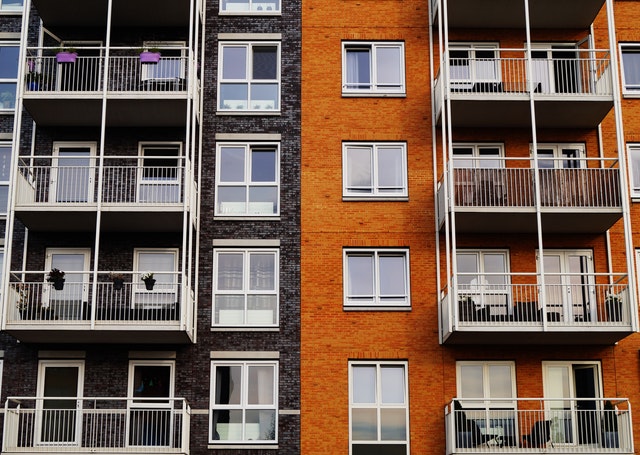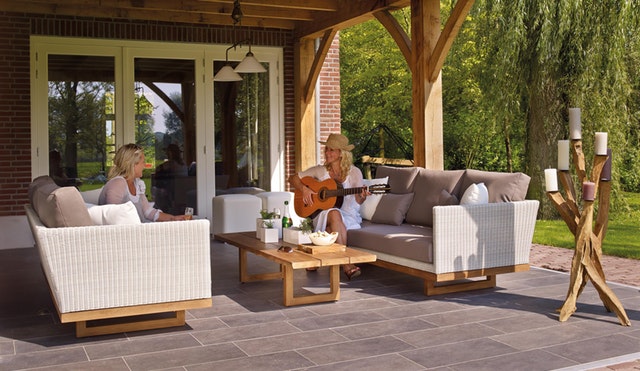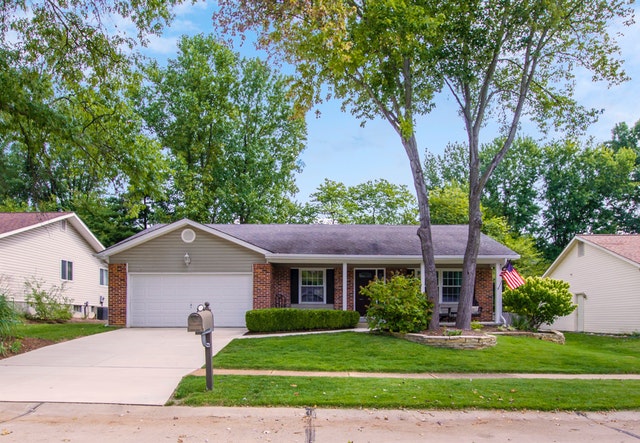 The right home renovation strategy can increase property values and improve the comfort and utility of your space. However, your actions could have a harsh impact on our natural resources.
The right home renovation strategy can increase property values and improve the comfort and utility of your space. However, your actions could have a harsh impact on our natural resources.
Here are several ways you can reduce your renovation’s effect on the environment.
Use Sustainable Products
Choose Earth-friendly materials for a greener build.
- Try reclaimed flooring. Ask permission at construction sites or search internet exchange boards to find unwanted extras. With a little artistic imagination, you can turn those cast-offs into a unique visual display.
- Re-purpose existing material. Turn old doors into unique furniture pieces like tables and privacy shades to spruce up your new space.
- Pick low-VOC paints to eliminate harsh chemicals in your immediate environment.
The best way to lower your impact on the Earth is to carefully choose which products you use in your project.
Evaluate Your Trash
Think about what you’re putting in the dumpster. Instead of taking up space in a landfill, many items can be redistributed and put to better use.
- Donate household items that are no longer needed in your new space to your favorite charity.
- Contact your local Habitat for Humanity office to help your community by donating your unused construction materials.
- Contact your local school district. Some teachers take community donations to use in their classrooms.
Your trash could be someone else’s treasure. Don’t toss out something that others might need.
Take Care Of Your Immediate Area
Your environment includes the area in which you live. Use these tips to keep your property pristine during and after construction.
- Rent a dumpster to make clean up easier. Pick up tools, trash, and other items at the end of each work session.
- Use plastic tarps to protect landscaping and plant life from flying debris or chemical sprays.
- Dispose of chemicals properly. Never pour paints, solvents, or other chemicals into your plumbing system or down a municipal drain.
Protect your neighborhood by taking careful actions during your build.
A home renovation is a fresh start for your property. Make it even more enjoyable by adding these Earth-friendly strategies to your construction plan.
If you’re planning to update your home before you put it on the market, be sure to contact your trusted real estate professional to discuss the improvements that will get you the most out of your investment.
 Real estate isn’t a one-size-fits-all pursuit. Buying and renting multi-unit properties is one of the ways investors build residual income while increasing their property portfolios. However, multi-unit rentals come with some unique challenges. Are you ready to manage a multi-unit rental property?
Real estate isn’t a one-size-fits-all pursuit. Buying and renting multi-unit properties is one of the ways investors build residual income while increasing their property portfolios. However, multi-unit rentals come with some unique challenges. Are you ready to manage a multi-unit rental property? Perform roof maintenance on sunny days when there’s less chance of slipping. Blocking off a weekend twice a year gives you plenty of time to complete the items below without rushing or taking unnecessary risks. The beginning of spring and fall present the best opportunities to complete your maintenance before the weather turns too hot or too cold.
Perform roof maintenance on sunny days when there’s less chance of slipping. Blocking off a weekend twice a year gives you plenty of time to complete the items below without rushing or taking unnecessary risks. The beginning of spring and fall present the best opportunities to complete your maintenance before the weather turns too hot or too cold. Real estate investors sometimes get stuck in a rut. They repeat the same type of investment that they did before. This is not necessarily a bad thing because a successful experience is worth repeating. However, it is also a good idea to occasionally take a look at the big picture as well, to see what else is out there for investment consideration.
Real estate investors sometimes get stuck in a rut. They repeat the same type of investment that they did before. This is not necessarily a bad thing because a successful experience is worth repeating. However, it is also a good idea to occasionally take a look at the big picture as well, to see what else is out there for investment consideration. Home ownership is highly valued in our culture. However, buying a home isn’t the best decision for everyone. Examine the differences between owning and renting your home to help you decide if now is the time to buy.
Home ownership is highly valued in our culture. However, buying a home isn’t the best decision for everyone. Examine the differences between owning and renting your home to help you decide if now is the time to buy. Maintenance is an important part of home ownership. Improper care compromises the safety of your property and can result in big repair bills. Include these strategies in your maintenance plan to reduce your out-of-pocket costs.
Maintenance is an important part of home ownership. Improper care compromises the safety of your property and can result in big repair bills. Include these strategies in your maintenance plan to reduce your out-of-pocket costs. According to the US Department of Energy, the average American household paid $111.67 each month for utilities in 2017. With some research and a few DIY projects, property owners can reduce those energy costs without sacrificing comfort or convenience.
According to the US Department of Energy, the average American household paid $111.67 each month for utilities in 2017. With some research and a few DIY projects, property owners can reduce those energy costs without sacrificing comfort or convenience. Are you just starting on your real estate investing journey? Many newcomers are surprised to learn that there’s more to making money on the real estate market than buying and selling. These are some of the most popular strategies real estate investors use to create profits. Which one is right for you?
Are you just starting on your real estate investing journey? Many newcomers are surprised to learn that there’s more to making money on the real estate market than buying and selling. These are some of the most popular strategies real estate investors use to create profits. Which one is right for you? Are you saving up money for a down payment? Saving money to put down on a home is always a smart idea, but there are right ways and wrong ways to go about it. Understanding how to best save for a down payment will go a long way toward ensuring you’re ready when you finally find the house of your dreams.
Are you saving up money for a down payment? Saving money to put down on a home is always a smart idea, but there are right ways and wrong ways to go about it. Understanding how to best save for a down payment will go a long way toward ensuring you’re ready when you finally find the house of your dreams. Your carbon footprint is the measure of your impact on the earth’s natural resources. This number describes the amount of fossil fuel it takes to support your lifestyle. In the United States, each person produces an average of 19.78 tons of carbon dioxide every year. A high carbon footprint means your daily habits are a quickening drain on our finite resources.
Your carbon footprint is the measure of your impact on the earth’s natural resources. This number describes the amount of fossil fuel it takes to support your lifestyle. In the United States, each person produces an average of 19.78 tons of carbon dioxide every year. A high carbon footprint means your daily habits are a quickening drain on our finite resources.